Legal with Leah: New low risk retail food license for direct marketers
A new low risk license should bring consistency across Ohio in regard to nonmechanical refrigeration.
Read MoreTo fill consumer demand, Richard and Rae Lynn Bonner have expanded their family farm by opening a meat shop and building a processing facility.
When customers shop at Bonner Farms Beef and Market near Garrettsville, they’re looking for information along with their meat.
“That’s the backbone of the local meat shop,” said Richard Bonner. “People who come into our shop want to know where the meat is coming from, and they’re paying a premium for it.”
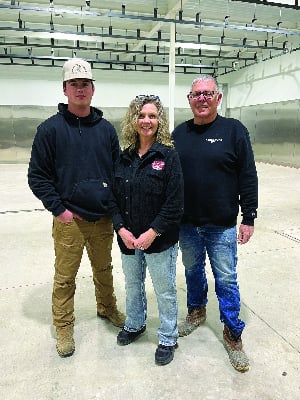
To fill that consumer demand, Richard and his wife, Rae Lynn, have expanded on their family farm by opening a meat shop and building a processing facility. This vertical integration allows them to control every step in the production process from raising feed for the cattle to selling the meat directly to consumers. The retail market opened a year and a half ago, and the first meat was processed through their facility last fall.
Rae Lynn noted that the market was a byproduct of the pandemic, when Bonner’s was selling beef out of their garage when it was scarce in those early months of COVID-19. The customers just never stopped coming, so what had been a mostly wholesale-only operation began the direct-to-consumer line.
The Bonners farm about 3,000 acres in Geauga and Portage counties and have pasture ground in West Virginia as well. Besides raising field crops, they have a herd of more than 100 Angus brood cows. They feed out the calves from their herd, and also buy additional calves. In all, they feed out 1,500 to 1,800 beef cattle every year.
The Bonners’ 17-year-old son, Joe, helps out with the farming. The Bonners also have grown children who operate their own agricultural enterprises. Their son, John Bonner, raises lettuce in his hydroponic greenhouse, Great Lakes Growers, near Burton. Their daughter, Jill Cain and her husband, Todd, run a six-acre greenhouse producing annual plants, Eagle Creek Growers, near Mantua.
When they first started raising cattle, the Bonners sold through conventional livestock auctions, but eventually Richard realized he could earn better prices selling to Pineland Farms Natural Meats and other premium meat brands.
The production practices required to fit those premium market niches aligned with many of the practices the Bonners were already using, but documentation is required.
“There’s a whole list of protocols,” Richard said. For instance, their farm is certified through the Global Animal Partnership, which provides third-party oversight of production practices to meet animal welfare standards. Most of the cattle they feed out are considered “natural,” meaning they were raised without being treated with added hormones, steroids or antibiotics.
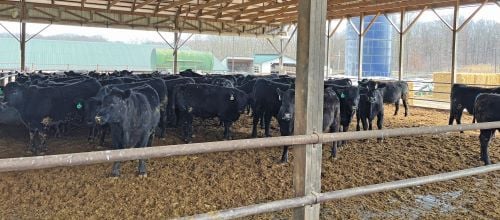 Richard explained he produces the kind of beef he likes to eat. Like his customers, he wants to know where and how his meat was produced. “One of my favorite sayings is you are what you eat,” he said.
Richard explained he produces the kind of beef he likes to eat. Like his customers, he wants to know where and how his meat was produced. “One of my favorite sayings is you are what you eat,” he said.
Following the natural beef production protocols does add to production costs. “It takes another 45 to 60 days to raise an animal,” Richard said. Recordkeeping and animal handling guidelines add to the price of the meat, too.
“It’s a little pricier, but to me it tastes different,” he said.
Most of the beef the Bonners sell continues to go to Pineland Farms Natural Meats and other retailers, but with their market and processing facility, they are able to serve customers directly as well, Richard said. “We sell the same beef that we sell to Pineland Farms out of (our) store.”
It can be a challenge to get started selling directly to consumers, Richard said. For one thing, people like the convenience of shopping at a grocery store where they can buy everything in one place. “You’re asking them to make another stop to buy their meat,” he explained. “You’ve got to have something to offer them.”
Their website is sleek and robust, offering an interactive experience with videos, easy navigation and tidbits about the company and its products. Orders can be made directly online as well. Bonner Farms Beef also has a significant online presence, with active posting on social media such as Facebook and Instagram.
The Bonners’ meat shop offers a wide selection of fresh beef cuts and vacuum-sealed frozen beef. Customers can also get freezer beef cut to order or as “butcher’s cut” halves available with no waiting. To give customers more variety and help other local farmers, they carry locally raised pork, chicken and dairy products as well.
Besides processing some of their own cattle to supply the retail market, the Bonners’ processing facility provides custom processing for other nearby farms. The demand for custom processing is strong and other processors in the area are often fully booked, Richard said. So, when they started offering processing for hogs and cattle, farmers called on them to pick up some of the overflow.
The processing facility has cooler capacity for 300 cattle and the Bonners plan to continue developing the processing business. As sales grow, they hope to process more of their own animals to market directly to consumers, Richard said. “My goal is to process all my own beef.”
Photos by Kelli Milligan Stammen
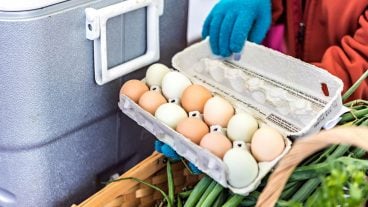
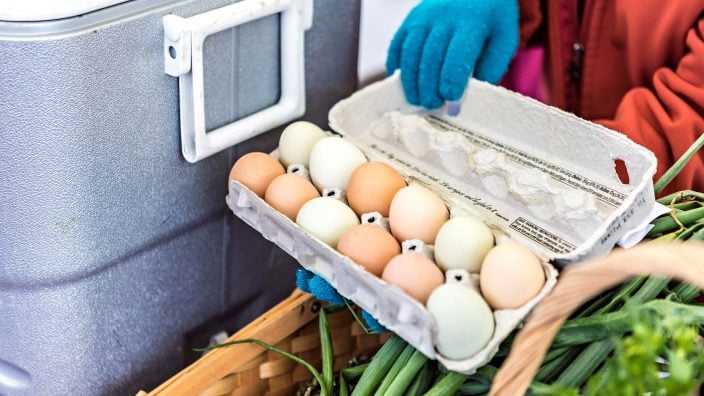
A new low risk license should bring consistency across Ohio in regard to nonmechanical refrigeration.
Read More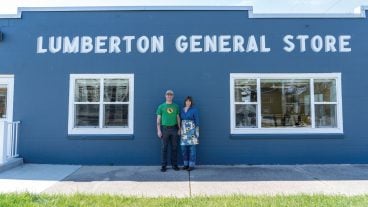
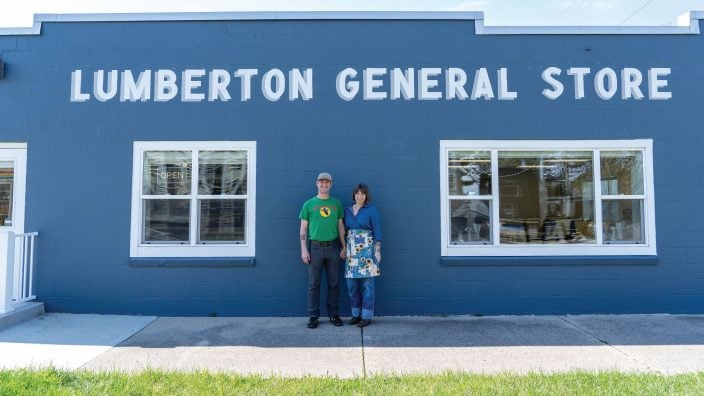
Emily Buchanan and Sam Ginn have restored a Clinton County restaurant it to its original restaurant roots, but also added a general store element to showcase local producers and their products.
Read More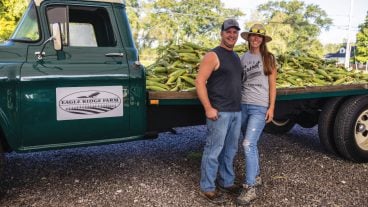
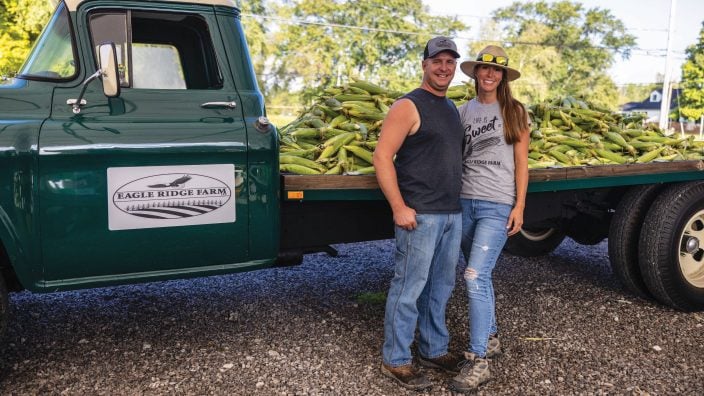
An impeccable crew, a sweet corn hotline, corn dog Maizey and meeting customers at the farm add up to success at Eagle Ridge Farm.
Read More

The Small-Scale Food Business Guide covers federal and state regulations for selling food products such as raw meat, dairy, eggs, baked goods, cottage foods, fruits and vegetables, honey and more.
Read More

Krysti Morrow is finding success promoting Rocky Knob Farm through regular emails, lively blogs on the farm website and forays onto Facebook and Instagram.
Read More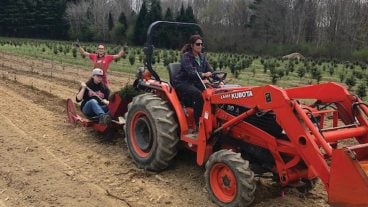
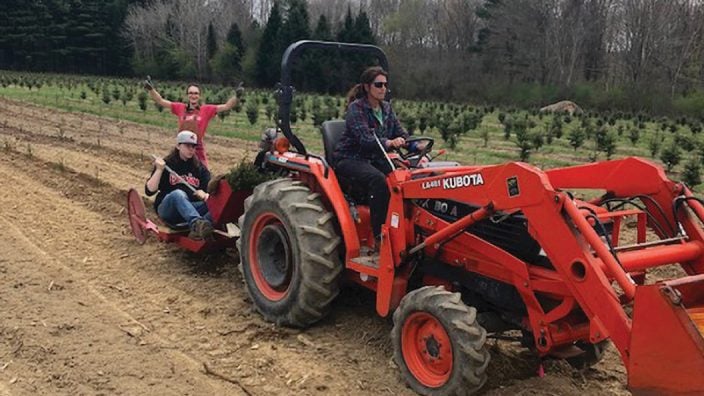
Social media has turned direct marketing upside down. Still, no matter what you are producing, it all begins and ends with having a good product to market.
Read More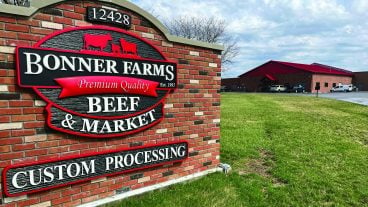
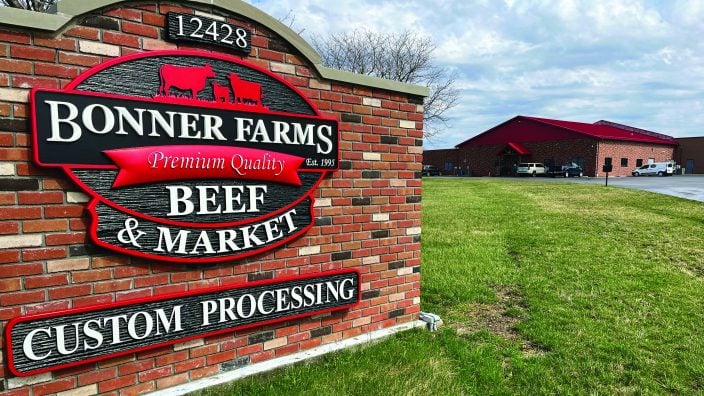
To fill consumer demand, Richard and Rae Lynn Bonner have expanded their family farm by opening a meat shop and building a processing facility.
Read More
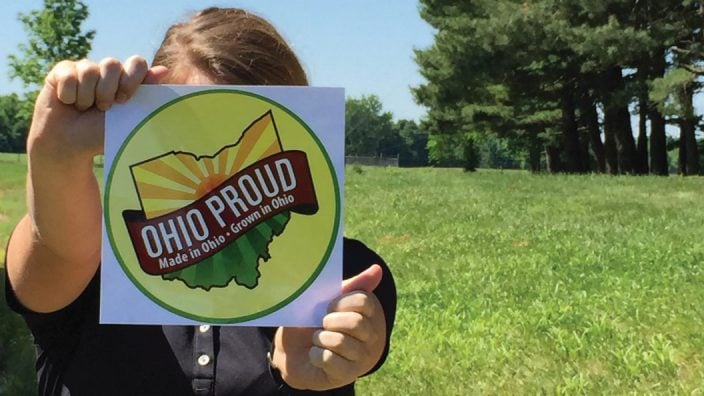
Created in 1993, Ohio Proud is the Ohio Department of Agriculture’s marketing program that identifies and promotes food and agriculture made in Ohio and grown in Ohio.
Read More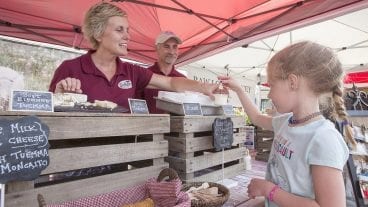
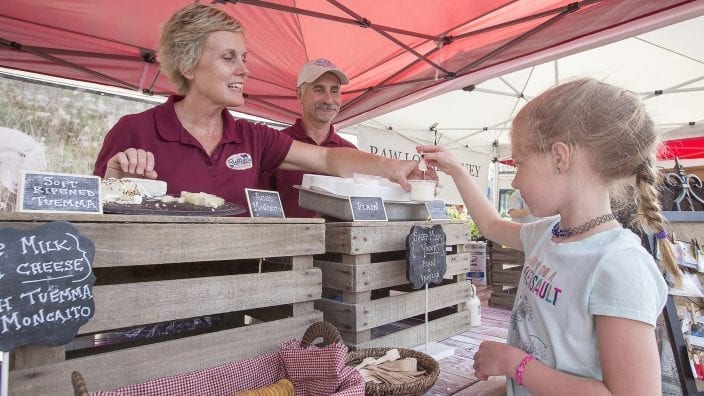
New resources and technology are broadening the different types of sales tools and strategies available to farmers.
Read More